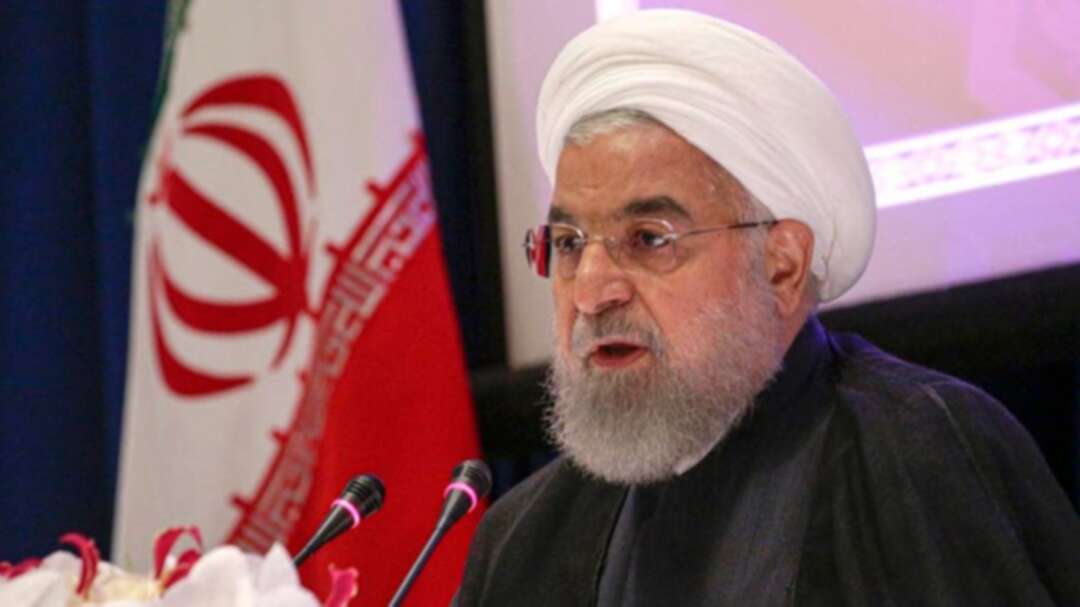-
Dreadful human rights violations by Iranian regime!

According to Amnesty International's annual report, Iran ranked second in the world last year in terms of the highest number of executions in the world. However, proportional to its population Iran had the highest number of executions and execution of women in the world. During Rouhani's 7 years of presidency, Iran executed more than 4,300 people, of whom 109 were women and at least 38 were juvenile. Presently, in only in 20 countries in the world, the death sentence is issued and carried out to punish the criminals, and 177 abolished death penalty.
For last year Amnesty International considering the Regime’s habit of carrying out large number of secret executions puts this figure at least 246. According to Human Rights Activists News Agency (HRANA) in Iran, it is more than 70% of these sentences were carried out secretly.
According to Amnesty International, Iran uses unusual methods that sometimes even violate the Islamic Republic’s law like; prohibiting the accused access to a lawyer, forced confession through torture and then televising the confession, not notifying accused’s family and relatives, and in case of execution of freestyle champion wrestler Navid Afkari not even informing the accused person of final sentence until the last moment. Last year the execution of the defendants, who were less than eighteen years old at the time of the alleged crime, continued.
The Iranian regime has used the death penalty as another "tool to suppress political dissent."
According to the report, in 2020, the Iranian regime, used execution as a mean to suppress ethnic minorities such as the people of Baluchistan, Kurdistan and Arabs in Khuzestan provinces, and in implementing this policy, at least 24 Baloch and 11 Kurds were executed. It is worth mentioning that these numbers of executions were on the top of 166 Kurdish Koolbar (goods transporter) and dozens of Baloch fuel transporter shot and killed by this repressive regime last year.
Reporters Without Borders (RSF) in its annual report released on Tuesday, April 20, ranked Iran in the World Press Freedom Index 174 out of 180 countries. Even Syria, Iraq and Tajikistan ranked better than Iran in this table, and Afghanistan is far better than Iran in terms of press freedom, ranking 122nd.
According to RSF, the Iranian regime has always been at the bottom of the table since the publication of the World Press Freedom Index (2002) due to government crackdowns on freedom of information.
According to this report, at the time of coronavirus outbreak, the Iranian regime enforced stricter control on media, increased the number of detained and sentenced journalists to heavy prison terms and tried to stop the flow of accurate and precise information about infected and death toll and provide statistics that is much lower than real one.
RSF estimates that the death toll from coronavirus in Iran is more than double the number announced by Iranian regime officials (although the actual number has risen to more than 260,000 due to the Iranian regime's policies; Its people have not yet been vaccinated, which has put the country in a deadly situation) and emphasizes: The officials of the Islamic Republic of Iran, during this period, "In addition to restraining information in traditional and official media, as well as on the Internet, increased summoning, arresting and condemning newspapers and citizens-journalists, bloggers."
RSF report referred to the issuance and execution of death sentences against journalists in 2020 and specified: Iran has issued and executed the largest number of death sentences against journalists in the last 50 years. Last year, for example, Regime kidnapped Ruhollah Zam from Iraq and executed him after a kangaroo court.
by: Cyrus Yaqubi
Cyrus Yaqubi is a Research Analyst and Iranian Foreign Affairs Commentator investigating the social issues and economy of the middle east countries in general and Iran in particular.
You May Also Like
Popular Posts
Caricature
BENEFIT Sponsors BuildHer...
- April 23, 2025
BENEFIT, the Kingdom’s innovator and leading company in Fintech and electronic financial transactions service, has sponsored the BuildHer CityHack 2025 Hackathon, a two-day event spearheaded by the College of Engineering and Technology at the Royal University for Women (RUW).
Aimed at secondary school students, the event brought together a distinguished group of academic professionals and technology experts to mentor and inspire young participants.
More than 100 high school students from across the Kingdom of Bahrain took part in the hackathon, which featured an intensive programme of training workshops and hands-on sessions. These activities were tailored to enhance participants’ critical thinking, collaborative problem-solving, and team-building capabilities, while also encouraging the development of practical and sustainable solutions to contemporary challenges using modern technological tools.
BENEFIT’s Chief Executive Mr. Abdulwahed AlJanahi, commented: “Our support for this educational hackathon reflects our long-term strategic vision to nurture the talents of emerging national youth and empower the next generation of accomplished female leaders in technology. By fostering creativity and innovation, we aim to contribute meaningfully to Bahrain’s comprehensive development goals and align with the aspirations outlined in the Kingdom’s Vision 2030—an ambition in which BENEFIT plays a central role.”
Professor Riyadh Yousif Hamzah, President of the Royal University for Women, commented: “This initiative reflects our commitment to advancing women in STEM fields. We're cultivating a generation of creative, solution-driven female leaders who will drive national development. Our partnership with BENEFIT exemplifies the powerful synergy between academia and private sector in supporting educational innovation.”
Hanan Abdulla Hasan, Senior Manager, PR & Communication at BENEFIT, said: “We are honoured to collaborate with RUW in supporting this remarkable technology-focused event. It highlights our commitment to social responsibility, and our ongoing efforts to enhance the digital and innovation capabilities of young Bahraini women and foster their ability to harness technological tools in the service of a smarter, more sustainable future.”
For his part, Dr. Humam ElAgha, Acting Dean of the College of Engineering and Technology at the University, said: “BuildHer CityHack 2025 embodies our hands-on approach to education. By tackling real-world problems through creative thinking and sustainable solutions, we're preparing women to thrive in the knowledge economy – a cornerstone of the University's vision.”
opinion
Report
ads
Newsletter
Subscribe to our mailing list to get the new updates!





















